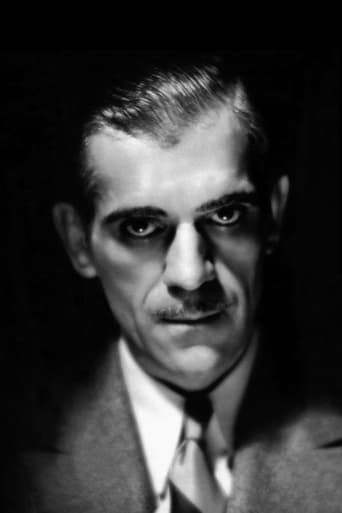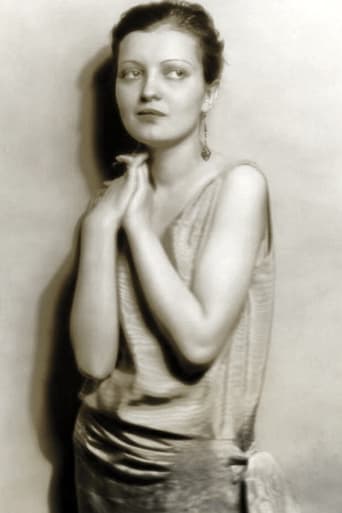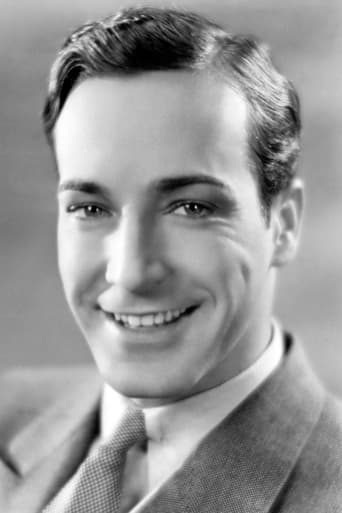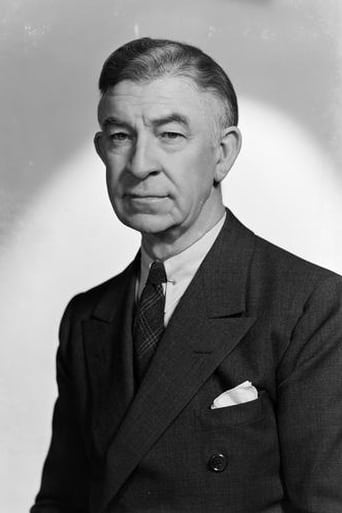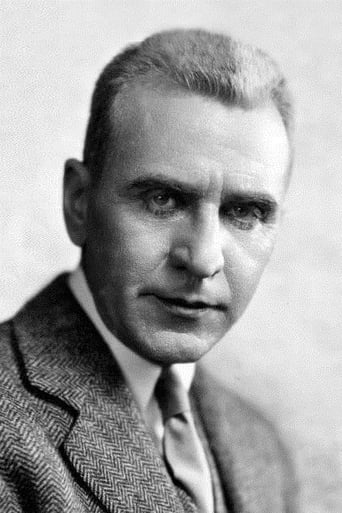Actuakers
One of my all time favorites.
SparkMore
n my opinion it was a great movie with some interesting elements, even though having some plot holes and the ending probably was just too messy and crammed together, but still fun to watch and not your casual movie that is similar to all other ones.
Lidia Draper
Great example of an old-fashioned, pure-at-heart escapist event movie that doesn't pretend to be anything that it's not and has boat loads of fun being its own ludicrous self.
Jenni Devyn
Worth seeing just to witness how winsome it is.
merelyaninnuendo
The MummyDark Universal will have to come up with something better than this for it will do just fine for a single installment but not for a series and especially not if one of the loopholes of the movie is character's perspective and its development. The Mummy is definitely amazing and horrifying but comparing it to the other films like Dracula or Frankenstein of the same genre, it is short on content and execution. Although the details mentioned in here (the dog or how she convinces her servants to help her escape to him) are as good as Dracula or Frankenstein. Karl Freud doesn't quite get the picture, is probably the reason he couldn't execute it to that level and fails to convince the audience about writer's vision. At the end, The Mummy is of course smartly written, well performed and has the perfect environment and only if it would have been in proper hands, might have been on the major league.
robert-temple-1
This was the original mummy film, doubtless inspired by the huge international frenzy of excitement concerning the discovery of the tomb of the Pharaoh Tutankhamun in November, 1922. After the discovery of that tomb, everyone's imaginations were working overtime, and it was inevitable that someone would see the Hollywood potential of a mysterious story about the discovery of a tomb. Nina Wilcox Putnam and Richard Shayer duly came up with a story, John L. Balderston wrote it up as a screenplay, and the cinematographer Karl Freund directed it. Freund was an expert at getting atmosphere from careful lighting and shadows, and there is plenty of it here to give mood to this brooding film. And then they chose the perfect leading players. Boris Karloff plays Imhotep, a High Priest of Amun-Ra of the 18th Dynasty who has offended against the gods and been buried alive wrapped up as a mummy. We see him in flashbacks to ancient times, but primarily he is a mummy who has been brought back to life by a British archaeologist reading out loud the text of a newly discovered papyrus containing the spell said to have been spoken by the Goddess Isis to raise her husband Osiris from the dead. The papyrus has been found in the coffin and the mummy is in the excavation hut with the archaeologist at the time. As a result of the spell being read, the mummy comes to life and slinks away. This is in the year 1921. We move forward in time now to the 1932 British Museum Expedition. A mysterious tall man in a galabiya and a fez appears and introduces himself to the archaeologists as Ardef Bey (spelled Ardath Bey in the IMDb credits list; Bey was an honorific title of respect in Egypt in those days, left over from the time of the Ottoman Empire). This mysterious figure is Boris Karloff, the mummy who has come to life and is now disguised as a contemporary Egyptian of considerable wealth. He says he can show the archaeologists the site of the tomb of the Princess 'Ankh-es-en-Amun' of the 18th Dynasty, daughter of the Pharaoh 'Amenophis'. The film says she died in 1730 BC, but the film has its dates wrong, because the 18th Dynasty was some centuries later than that (1549 BC – 1292 BC). But never mind, the film conveys a great atmosphere of authenticity because it incorporates location footage of the Tomb of Queen Hatshepshut near Luxor and even of the interior of the Cairo Museum. These scenes, seen in somewhat grainy black and white, are so reminiscent of the newsreel footage relating to the Tutankhamun find that the matching of the period atmosphere helps us imagine this is really happening back then. (And after all, it was made back then, which helps.) The tomb of the princess is duly found and her mummy is placed in the Cairo Museum. This princess happens to be the woman Boris Karloff was in love with in ancient times, and so he manages to creep into the Cairo Museum at night and starts to read the spell of Isis to bring her back to life, but is interrupted. Then he meets the young woman Helen Grosvenor, played by the Romanian actress Zita Johann, who certainly has a satisfyingly mysterious air about her. It turns out that she is the reincarnation of the princess. Zita Johann is wonderfully effective, and also plays the princess in flashback scenes of ancient times. She was born in Timisoara in Romania, and at the time she made this film she was married to fellow-Romanian John Houseman, who was born in Bucharest and later became a famous actor and director. Romanian women can look very mysterious without much effort, and so Zita Johann was well cast indeed. But of course the absolute star of this film is Boris Karloff, who probably never in his career looked so eerie and convincing, or delivered such a powerful impression on screen. His droll, droning voice, and the clever makeup which shows his face a mass of wrinkles, their dry and crinkling quality made all the more severe for being 3400 years old, work wonderfully well. His tall and lanky manner of walking, as if he had almost forgotten how to do so after so many millennia, is also an inspired bit of body language. Not that he is short of words, for he speaks most eloquently, especially when professing his love to the reincarnated princess. In her present life she is the daughter of the British 'Governor of the Sudan'. Once again the film is in error. Under the British, the Sudan was split into North Sudan and South Sudan. I know this because I knew the last Governor-General of the South Sudan, K.D.D. Henderson, very well when I was young and he was very old, and he was most particular to stress to me that he did not preside over the entire Sudan, but only the southern half of it. He said he loved it there and he got on very well with the Nubians, who were such fine fellows. Boris Karloff wants Zita Johann to rejoin him in eternal life, but that unfortunately means leaving this one first. The situation is very intense. Can she be saved? Or will she also become one of the 'undead' (perhaps not so unusual for a Romanian, as she came from the land of Dracula, but then we must not get our movies and stories mixed up). This film is a marvel of its kind, truly worth seeing, and a significant moment in the history of the cinema.
MisterWhiplash
I wanted to really like the Karl Freund Mummy as I love the Browning/Freund collaboration on Dracula and Frankenstein certainly has enough moments to make it a classic. I think the strongest parts for me are the opening and a segment midway through the movie; the former involves how the mummy Imhotep comes back to life as a few people working in an expedition in Egypt uncover it and the younger member of the group (the one in horror movies that doesn't give a flying-F and goes ahead to do the thing he/she shouldn't do) and says the words that make Boris Karloff in those pounds of make-up open his eyes. That's an effective scene because there's no music - music is used very judiciously except for a flashback and near the end - and because of how creepy and slow it is to see Karloff open his eyes and not even have to move his body much. Then the young guy laughs maniacally to discover the Mummy is gone. Oops.The other scene midway through (not counting the flashback I mentioned, which is actually alright as far as Freund and company trying for a stylized quasi-post-silent-movie sequence), where Imhotep, now under the name of Ardath Bey and with only a little make-up (but enough to make him look still creepy), and he somehow connects through some kind of mummy-telepathy to the woman of the picture (Zita Johnson) and makes her move through a room to collect her coat and almost leave. I liked how that scene was directed - matter of fact, a lot of the direction here is superb, and makes me want to rate this higher as Freund clearly brings his sense of timing and how to make a moment speak cinematically in a way that is clever (how the camera moves up and then pushes down-ward and in to transition into the flashback is an example).I think what brings this down is simply that it a) moves too slow, which should be fine, as in creating an atmosphere that doesn't rush things and can take its time, but it's more-so that it's not getting me interested past the filmmaking aspect, and b) except for Karloff and maybe Johnson in one or two scenes (certainly not near the end when she starts to try to get emotional and upset at being told she'll be transformed into Ankh-es-en-amon), the performances aren't very good. Or I should say they are adequate and nothing is embarrassing, but it made things a little creaky for me when it comes to saying some of these lines. Not to mention, of course, that the writers took a great deal from Dracula (and no wonder as it was such a success) as far as a creature of the undead taking a woman to bring him some new life.I think there may be deeper themes to wrestle with here as far as existing or not existing and the agency that a woman has over her body and soul (how she does want to give in to Imhotep, but not *all* the way so that Helen is no more), but I couldn't get invested enough to care about the characters as it was fairly thin. At 73 minutes it doesn't overstay its welcome, however with stronger writing it could've been longer and possibly better.
apanda8myhomework
As a long time fan of the Universal monster movies, The Mummy has been a favorite of mine for quite some time. Boris Karloff's portrayal was perfection. His stern gaze and wrinkled appearance gave me chills. My favorite shots of him were when he would use his powers to control or kill someone. The up close shot combined with the lighting playing with his eyes really magnified the significance of what was going on. The story was solid and explained how Imhotep came to be where he was, with some great story telling through the reflection pool. The only thing I could possibly complain about would be how the film ends. It feels like it was cut too soon and something is missing. Other than that, I say this is a film that speaks volumes over the ages as one of the original sound horror films.



